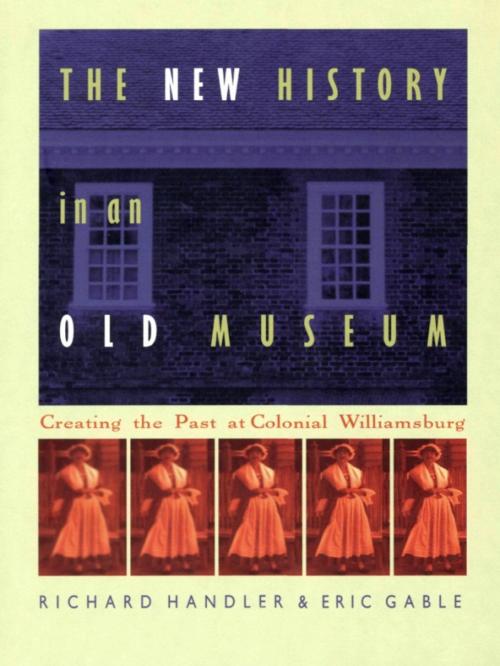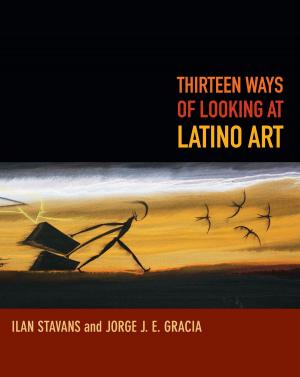The New History in an Old Museum
Creating the Past at Colonial Williamsburg
Nonfiction, History, Americas, United States, State & Local, Colonial Period (1600-1775)| Author: | Richard Handler, Eric Gable | ISBN: | 9780822398523 |
| Publisher: | Duke University Press | Publication: | July 17, 1997 |
| Imprint: | Duke University Press Books | Language: | English |
| Author: | Richard Handler, Eric Gable |
| ISBN: | 9780822398523 |
| Publisher: | Duke University Press |
| Publication: | July 17, 1997 |
| Imprint: | Duke University Press Books |
| Language: | English |
The New History in an Old Museum is an exploration of "historical truth" as presented at Colonial Williamsburg. More than a detailed history of a museum and tourist attraction, it examines the packaging of American history, and consumerism and the manufacturing of cultural beliefs. Through extensive fieldwork—including numerous site visits, interviews with employees and visitors, and archival research—Richard Handler and Eric Gable illustrate how corporate sensibility blends with pedagogical principle in Colonial Williamsburg to blur the lines between education and entertainment, patriotism and revisionism.
During much of its existence, the "living museum" at Williamsburg has been considered a patriotic shrine, celebrating the upscale lifestyles of Virginia’s colonial-era elite. But in recent decades a new generation of social historians has injected a more populist and critical slant to the site’s narrative of nationhood. For example, in interactions with museum visitors, employees now relate stories about the experiences of African Americans and women, stories that several years ago did not enter into descriptions of life in Colonial Williamsburg. Handler and Gable focus on the way this public history is managed, as historians and administrators define historiographical policy and middle-level managers train and direct front-line staff to deliver this "product" to the public. They explore how visitors consume or modify what they hear and see, and reveal how interpreters and craftspeople resist or acquiesce in being managed. By deploying the voices of these various actors in a richly textured narrative, The New History in an Old Museum highlights the elements of cultural consensus that emerge from this cacophony of conflict and negotiation.
The New History in an Old Museum is an exploration of "historical truth" as presented at Colonial Williamsburg. More than a detailed history of a museum and tourist attraction, it examines the packaging of American history, and consumerism and the manufacturing of cultural beliefs. Through extensive fieldwork—including numerous site visits, interviews with employees and visitors, and archival research—Richard Handler and Eric Gable illustrate how corporate sensibility blends with pedagogical principle in Colonial Williamsburg to blur the lines between education and entertainment, patriotism and revisionism.
During much of its existence, the "living museum" at Williamsburg has been considered a patriotic shrine, celebrating the upscale lifestyles of Virginia’s colonial-era elite. But in recent decades a new generation of social historians has injected a more populist and critical slant to the site’s narrative of nationhood. For example, in interactions with museum visitors, employees now relate stories about the experiences of African Americans and women, stories that several years ago did not enter into descriptions of life in Colonial Williamsburg. Handler and Gable focus on the way this public history is managed, as historians and administrators define historiographical policy and middle-level managers train and direct front-line staff to deliver this "product" to the public. They explore how visitors consume or modify what they hear and see, and reveal how interpreters and craftspeople resist or acquiesce in being managed. By deploying the voices of these various actors in a richly textured narrative, The New History in an Old Museum highlights the elements of cultural consensus that emerge from this cacophony of conflict and negotiation.















